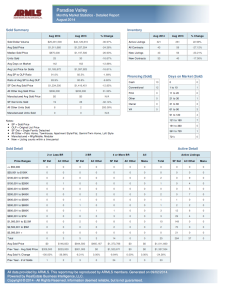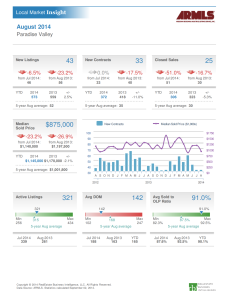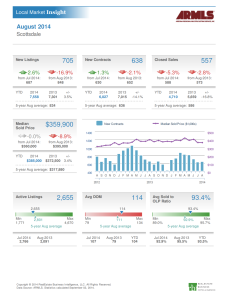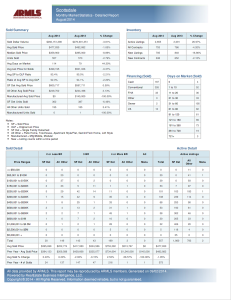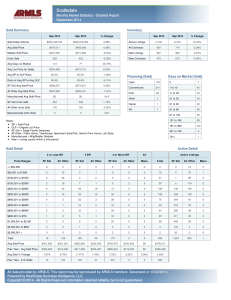
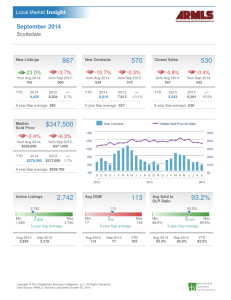 Considering a purchasing or selling a property in Scottsdale? Call Joe and Linda Szabo – The Scottsdale Real Estate Experts!
We hope that you enjoy reading and analyzing the Scottsdale Luxury Home Report and should you have any questions or comments, please feel free to Contact Joe Szabo at 480.688.2020 or email him directly at [email protected]. You can also visit https://scottsdalerealestateteam.com to find out more about Scottsdale Homes for Sale and Estates for Sale in Scottsdale and to search the Scottsdale MLS for Scottsdale Home Listings.
Please note that this Scottsdale Real Estate Blog is for informational purposes and not intended to take the place of a licensed Scottsdale Real Estate Agent. The Szabo Group offers first class real estate services to clients in the Scottsdale Greater Phoenix Metropolitan Area in the buying and selling of Luxury homes in Arizona. Award winning Realtors and Re/MAX top producers and best real estate agent for Luxury Homes in Scottsdale, The Szabo group delivers experience, knowledge, dedication and proven results.
Considering a purchasing or selling a property in Scottsdale? Call Joe and Linda Szabo – The Scottsdale Real Estate Experts!
We hope that you enjoy reading and analyzing the Scottsdale Luxury Home Report and should you have any questions or comments, please feel free to Contact Joe Szabo at 480.688.2020 or email him directly at [email protected]. You can also visit https://scottsdalerealestateteam.com to find out more about Scottsdale Homes for Sale and Estates for Sale in Scottsdale and to search the Scottsdale MLS for Scottsdale Home Listings.
Please note that this Scottsdale Real Estate Blog is for informational purposes and not intended to take the place of a licensed Scottsdale Real Estate Agent. The Szabo Group offers first class real estate services to clients in the Scottsdale Greater Phoenix Metropolitan Area in the buying and selling of Luxury homes in Arizona. Award winning Realtors and Re/MAX top producers and best real estate agent for Luxury Homes in Scottsdale, The Szabo group delivers experience, knowledge, dedication and proven results.


 ng was that if you missed the spring selling season, you missed the boat. Once summer rolls around and school starts shortly after that, families are more settled, the thinking went, and therefore less inclined to pick up and move (unless a job change or other circumstance forced them).
Also, Thanksgiving, Christmas, New Year’s and the January cold snaps follow the start of school. In the past, no one wanted to take time to drive around looking at homes when all of this was happening.
Things have changed. Today’s buyers aren’t necessarily timing a home purchase or sale around school schedules because people tend to settle down later in life and live longer. The result is urban expansion; more single, first-time and millennial buyers as well as baby boomers looking to buy (and sell). Also, a lot of home shopping, at least initially, happens online and via apps. Buyers don’t have to take time out of their busy schedules to drive around — they can just sit down with a tablet on the couch.
As a result of the Internet, our hectic schedules and mobile lifestyles, the fall months are no longer a real estate dead zone. True, spring is still the busiest time overall. But there’s plenty of action happening after Labor Day through Christmas, enough to make it worth your while to put up the ‘For Sale’ sign.
Here’s why.
ng was that if you missed the spring selling season, you missed the boat. Once summer rolls around and school starts shortly after that, families are more settled, the thinking went, and therefore less inclined to pick up and move (unless a job change or other circumstance forced them).
Also, Thanksgiving, Christmas, New Year’s and the January cold snaps follow the start of school. In the past, no one wanted to take time to drive around looking at homes when all of this was happening.
Things have changed. Today’s buyers aren’t necessarily timing a home purchase or sale around school schedules because people tend to settle down later in life and live longer. The result is urban expansion; more single, first-time and millennial buyers as well as baby boomers looking to buy (and sell). Also, a lot of home shopping, at least initially, happens online and via apps. Buyers don’t have to take time out of their busy schedules to drive around — they can just sit down with a tablet on the couch.
As a result of the Internet, our hectic schedules and mobile lifestyles, the fall months are no longer a real estate dead zone. True, spring is still the busiest time overall. But there’s plenty of action happening after Labor Day through Christmas, enough to make it worth your while to put up the ‘For Sale’ sign.
Here’s why.





